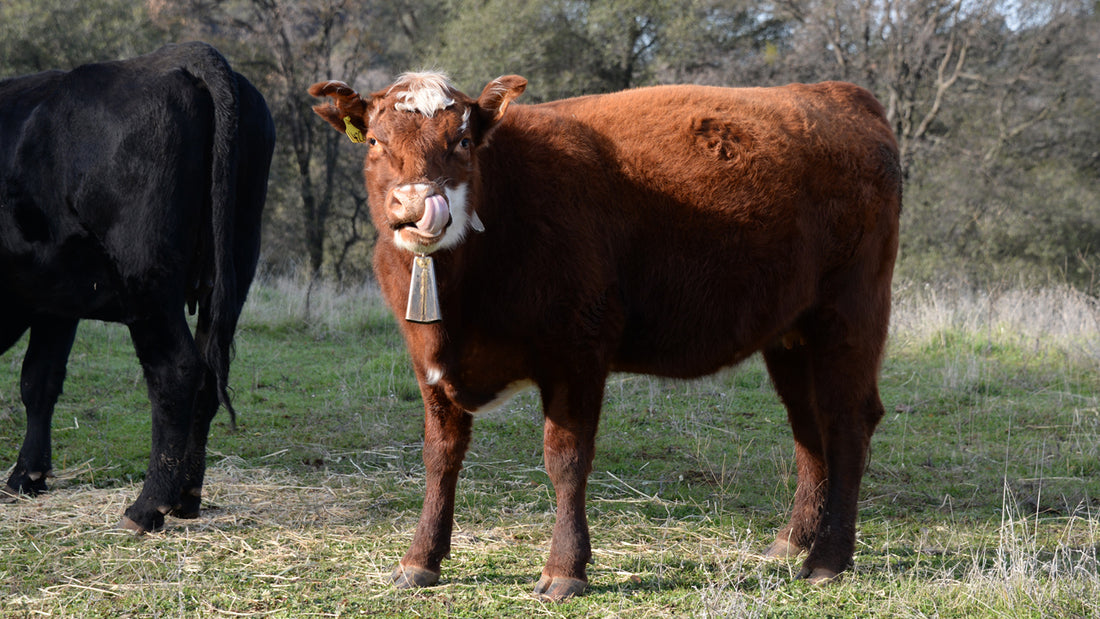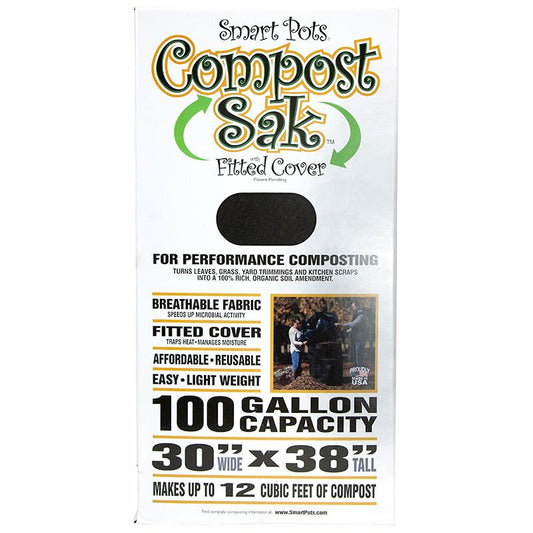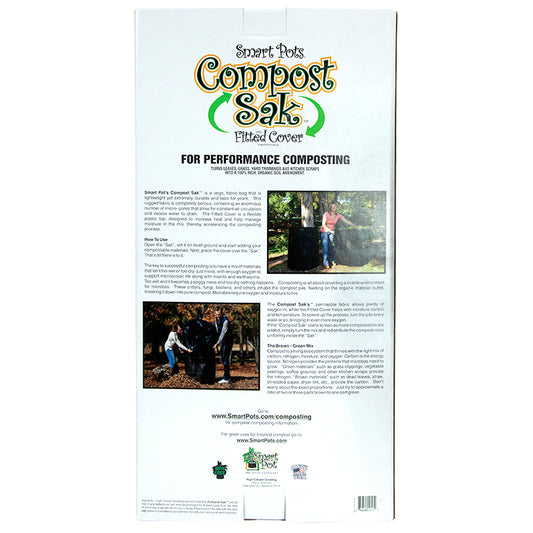Types of Organic Manure
Do you ever feel overwhelmed by the choices of composted manure when you flip through a fertilizer catalog? Or perhaps you've been offered a free truckload of manure from a neighbor but aren't sure if it's the best option for your garden. There are definite benefits and risks from each kind of manure–chicken, cow, horse, alpaca, sheep, rabbit, pig, and even elephant manures are as unique as the animals they come from.
Why Buy Organic Manure?
- Manure can vary up to 30% in their nutrient values even within one species due to factors such as diet, life stage (for example, growing cattle versus lactating cows), management and environmental differences, how much urine is collected with the manure (such as when it is collected with bedding materials), and even genetics.
- The biggest difference comes from diet: what goes in does come out. In fact, livestock typically excrete 50% and as much as 90% of the nutrients they're fed. So a horse that is only pastured on grass will have a much different manure (one that contains far less nutrients) than a horse that eats alfalfa hay and grain.
- Buying organic manure is particularly important for this reason. Many hay farmers treat their fields with broadleaf herbicides, and these can travel intact through the animals' digestive systems. If you use manure from animals fed conventionally grown feeds, the pesticides and herbicides used on those feeds will be excreted along with the good nutrients.
Consider the Salt Content of Manure
Another major difference is the amount of salt found in manure. All manure contains some salt, as a part of the body's natural metabolic process. But some animals, such as feedlot steers and dairy cows, are fed extra salts to encourage them to eat and drink more. Backyard livestock also often have access to a salt block. Generally these management practices do not result in a salty composted manure for your garden, because the salts will wash out during the composting process. However, if you are getting your manure from a local farm, it may have high salts if it is stored somewhere where the drainage is poor (preventing the salts from washing out) or if it has not been thoroughly aged or composted. If this is a risk, you will just need to finish the composting process yourself before applying the manure.

Is Your Animal Manure "Hot"?
One thing you should pay attention to regardless of the type of animal it comes from is whether the manure has been aged or composted. Aged manure has simply been piled up; over time the nitrogen turns to a gaseous form and leaves the manure. This will turn a “hot” manure – one that would burn your plants roots if applied fresh–to a “cool” manure that is safe for your garden. All manures except those from llamas, alpacas and cattle need to be aged at least six months before use to be properly cooled.
Composted Manure is Better
Composted manure has also been made “cool,” but with the additional benefit of having been heated by the composting process to kill pathogens such as e.coli, while at the same time culturing microbes that are good for your soil. For this reason, it is recommended even for naturally cool manures such as alpaca. Composting is also especially important for horse manure, and for any manure that comes from a weedy property. Horse's digestive system allows weed seeds to pass through unharmed, so composting can help kill most of these weeds before adding the manure to your garden. If you want to add raw manure (cool types) directly to the garden, a good rule of thumb is to add it at least 120 days before harvest of any vegetable that could potentially have contact with the soil (like root crops, leafy greens...). When in doubt, compost your animal manures first, even the "cool" ones.
Pros and Cons of Each Type of Manure
Chicken (and other fowl such as duck, goose, turkey, etc)
- Bird manures are very high in nutrients, especially nitrogen because urine is contained in the droppings.
- They are more acidic than most manure sources, so are particularly good for acid-loving plants.
- They also tend to be very hot, and will burn plants if applied fresh.
- Composting is highly recommended both to cool it and to reduce pathogen risk.
- Chicken manure will release most of its nutrients into the soil within the first year of application.
- Composted chicken manure such as Sup'r Green has an NPK of 3-2-2.
Cattle or Cow Manure
- Dairy cow manure is the most popular choice for cattle manure, since dairy cows are fed a nutrient rich diet and so produce an excellent quality manure.
- The NPK can vary greatly by the type of feed they're given, but is typically around 0.6-0.2-0.5.
- It is a cool manure, so it can be used fresh (but as with any manure, composting is still recommended to reduce the risk of pathogens).
- A good choice for dairy cow manure is our brand of cow manure compost.
Horse (and other equines)
- Horse manure is richer in nutrients than cow, but not as rich as chicken.
- It is borderline hot, but should be composted to kill off the weed seeds it usually contains.
- Horse manure typically has an NPK value of 0.7-0.3-0.6.
Sheep and Goat
- Sheep and goat manures are nearly identical.
- They are hot, dry, and very rich in nutrients.
- They typically have an NPK value of 0.7-0.3-0.9.
- They should be aged or composted before working into the soil.
- If collected with soiled bedding such as straw, they can be used fresh as a mulch around trees, vines and bushes where the manure can age while feeding the plants. However, even fresh manure mixed with bedding can burn more tender plants like annual veggies.

Llama and Alpaca
- Llama and alpaca manures, also called “beans,” are the same in terms of nutrients and benefits, with an NPK of 1.7-0.7-1.2.
- These manures are “cool” and can be used fresh on all but the most tender of plants.
- However, it is still recommended that they be composted first to reduce the risk of pathogens if using them in a vegetable garden.
- Because of how these critters' digestive systems function, their beans are virtually weed free.
Rabbit
- Rabbit manure is particularly high in nitrogen with an NPK of 2.4-1.4-0.6.
- Because rabbits don't produce very much manure, it is best used only for plants needing a nitrogen boost.
- To get the most out of the limited volume, soak the manure pellets in water and apply as a diluted liquid fertilizer.
Pig
- Pig manure is also very hot, although it is less rich in nutrients than chicken manure.
- Like chicken manure, it has a low pH and is good for acid-loving plants.
- NPK values vary depending on whether it is collected from young feeder pigs or mature pigs, but is at least 0.5-0.3-0.5.
- It is also the wettest of livestock manures, and should be mixed in a 1:1 ratio with straw to compost it before use.
Elephant or Zoo Manure
- Zoo manure is an exotic choice for your veggies, and is now being offered by some zoos which collect and compost the nutrient rich material instead of sending it to the landfill.
- Depending on the zoo, it may contain other herbivorous manure as well, such as giraffe, rhinoceros or hippo.
Other Manures
- Any herbivorous animal's manure can be used in your garden, but it is a good idea to steer clear of manure that came from a meat-eater.
- Cat and dog poop, as well as human waste, contain very dangerous pathogens that can pose a significant health risk should you eat any veggies grown in it.
No matter which livestock or poultry manure you choose, they will all provide the benefits of organic matter, beneficial microbes, and essential nutrients for your soil. Whether it came from your yard, a neighbor's farm, or from our store, using manure is a great way to grow organic!
Click here to see all of our growing and fertilizing supplies for sale.




7 comments
Everything I have read online and in published books indicates that rabbit droppings are a cold manure and can be applied directly without any need of composting. This has matched my experience. Why does the author say the opposite? What evidence?
Lawrence, wild deer poop will vary in nutrient content vs deer eating in urban areas getting fed more than wild plants. It is an adequate fertilizer, you just do not know the nutrient content of the poop. Best practice for any kind of animal poop you want to put on the garden (no dog, cat or human), is to allow it to compost and reach about 140F in the pile before adding it to the garden. That way if there are any pathogens, the composting will kill them. If adding it to your food garden, make sure you wash your harvest just in case any poop has touched the veggies.
I found a lot of deer droppings around my place. Is it any good as a fertilizer?
Charles, I have read several articles and some say it is not hot, some say it is. So the jury is out on it. If it works well for you that is wonderful. But to go on the side of caution, it can be composted for a few months to cool it off.
Rabbit poop is NOT hot. At least mine arent! My plants love it directly applied especially if i break it up into small particles is an instant boost. I can even just throw them in my planted fishbowls… even the shrimp dig through them after a couple of days. This is a load of crap unless someone can scientifically explain the difference and why!